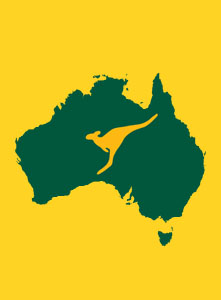The origin of the word Easter is quite straightforward:
Middle English ester, Old English ēastre, originally, name of goddess associated with the vernal equinox; distantly related to Latin aurōra dawn, Greek eōs; related to east
But, for most of us, how the date of Easter is calculated each year is a mystery.
Historically, because of the religious affiliation of most of the white, Anglo-Saxon Christian colonists and legislators in Australia, it was the Christian festivals that were deemed to merit gazettal as public holidays.
Easter is one of those. Unlike the other one, Christmas, which always falls on 25 December, Easter is what is called a ‘movable feast’, its date calculated on the basis of the equinox and the state of the moon. There are a few moving parts involved in the determination of the date of Easter.
Easter is observed on the first Sunday after the full moon which occurs on or next after the vernal equinox, which usually falls on 20 or 21 March. Oh, and ‘vernal’ means ‘spring’, so, in Australia, the vernal (spring) equinox falls in autumn. Sensibly, this is often called the autumnal or March equinox in the Southern Hemisphere, but not always, unfortunately.
So, Easter can occur on any Sunday between 22 March and 25 April.
Simple!? But wait – these calculations are used to arrive at the date of Easter in Western Christianity. They are based on the Gregorian calendar. The Eastern Orthodox churches, such as the Greek and Russian Orthodox churches, use the older Julian calendar to work out the date of Easter. Orthodox Easter falls between 4 April and 8 May. You can read more about calendars in our blog on the naming of the days of the month here.
Thank goodness our diaries and calendars do the work for us!




